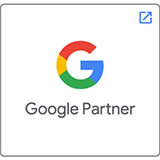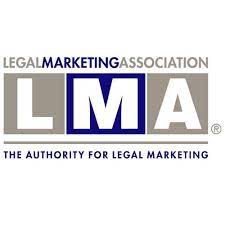New Florida Bar Rules for Law Firm Web Sites – MUST READ
Update: The Florida Bar has released new advertising rules. Please visit our blog posts on the subject here:
- 12 Changes to Florida Bar Advertising Rules for 2013
- Florida Bar Website Advertising Rules: A Detailed Analysis of the Rules & Our Notes
- Florida Bar Advertising Rules on Posts to Twitter and Facebook Posts
The Florida Supreme Court has issued a recent opinion changing all law firm sites in Florida. This is a must read for all lawyers who have a web presence in Florida as the rules go into effect on January 1, 2010. You can view the full opinion here sc08-1181-1.pdf.
What is the Big Idea of the New Rules?
Law Firm sites are no longer “requests for information”. Therefore your web site must comply with all advertising rules, except the filing requirement.
What does this mean to my firm?
1. You can no longer have testimonials on the web site.
2. You can no longer have past results on the web site.
3. You can no longer have laudatory statements.
That is all you need to know for now. If your site has any past results, testimonials and laudatory statements you must change by January 1, 2010.
Our Thoughts
Below is our analysis and quick thoughts about this rule change.
Is a Click a Request for Information?
The Supreme Court fails to recognize that clicking on a link is a request or action on the users part. Put simply, this wrong. Just because it is easy to make a click, does not mean it is not a request for information. A user is actively requesting information when they make a click. It just happens to be easier than picking up the phone.
Anytime someone picks up the phone, asks a lawyer for information, they can respond with testimonials, past results and laudatory statements. If asked, a lawyer can tell the person about their verdicts, so long as it is all true. However, because a user clicks on a link, wanting the same information, the firm cannot give that out online.
This seems at odds with common sense. Every click should be considered a request for information. If a person is wanting information and trying to compare law firms quickly online, should they not have access to that information?
Is the Consumer Even Really Hurt by Testimonials or Past Results?
This is more of a theoretical question. Are consumers hurt or helped by testimonials and past results on web sites?” If they are truly hurt, then should they not be banned in all situations?
The main reasoning for Florida Bar Rules on advertising by lawyers is to protect the consumer and the practice of law. How is the consumer hurt by testimonials and listing past results though? The bar states:
“[Testimonials] are extremely troubling because they have the most potential for abuse, as well as the most potential for further denigrating the justice system and the legal profession in the minds of the public.”
That is a really bold statement and no citation to a study that says testimonials are abused or denigrate the justice system.
Yes, there are always going to be firms that poorly market themselves and market unethically. This will happen even after these rules. Those firms will make false claims, get odd testimonials, run up the scoreboard with big verdicts on their site, and make outlandish claims like they invented the question mark. However, when lawyers cross the line, we have the misleading / false information rules to slap them around with.
Why is there a need to disadvantage firms that are actually good at what they do and have happy clients?” Testimonials and past results are great resources for any business, including law firms. I believe it actually increases the standing of lawyers and improves their image if done properly.
Instead of empowering good firms, we are now stating that all firms are equal, when that is not the case.
I Want a Winner.
If a firm does consistently win, wouldn’t you want to know that?” I sure would. When I hire a lawyer, I want the best. I want to know who has won, settled, or helped the most clients. I want a firm that has verdicts, trial experience, and can organize their information effectively to showcase their talent. This proves to me that they know what they are doing.
Yes, wins do not always equate with being the best, but it is a good indicator. Yes, big wins make an influence on a consumer, and may lead them to believe they will get the same result in their case. However, there are ways to combat this with informed disclaimers (a la the financial system “past results are not an indicator of future results”). Moreover, the law firm itself will always want to match expectations with realities of a case. So if a firm lists huge wins only, then they do so at their own peril. Otherwise, they are always going to have dissatisfied clients, even with successful outcomes.
What this rule change does is level the playing field. Now all firms are as experienced in the eyes of the public, when we know that is not true. Now the best firms can’t actually advertise that they are the best. Imagine if Audi could not advertise that it won 8 of the last 10 LeMans 24 hour races. Imagine if Toyota could not represent that they consistently win consumer awards and races. Imagine if doctors could not represent that they performed thousands of surgeries all with great outcomes and great testimonials from their patients. They would be on the same playing field as other inferior car brands and medical quacks. Only in the legal profession do we limit the ability to advertise when a firm is in fact great at what they do.
This Puts Florida Law Firms at a Competitive Disadvantage
With this new opinion, every law firm in Florida is put at a disadvantage to firms in other states. The internet creates a new marketing bubble, one that allows any firm anywhere to market nationwide. No longer are Florida firms only competing with other Florida firms.
Firms in other states target Florida with their marketing efforts. Those firms who sign the client may ultimately co-counsel or refer the case to a Florida firm, but smart firms are target their practice area nationwide. They use web sites, blogs, and social media as their tools. Their web sites, blogs and social media tools are not bound by Florida’s more stringent rules. Because those firms are in another state they” do not have to comply with these rules. This puts a significant disadvantage to all firms in our state.
Moving Forward
All Florida firms must comply with this ruling and strip out testimonials, results and laudatory statements from their web site by January 1. We are working with our firms to comply with this decision and one possible idea is to create an actual request for information contact box. This may allow firms to comply with the ruling, allow users to gain access to the information, and also be a win-win by capturing great contact info.
Conclusion
Thanks for reading our thoughts. Feel free to comment as this is a work in progress on our opinion of this ruling. I know my team will be busy next month on advising clients.







